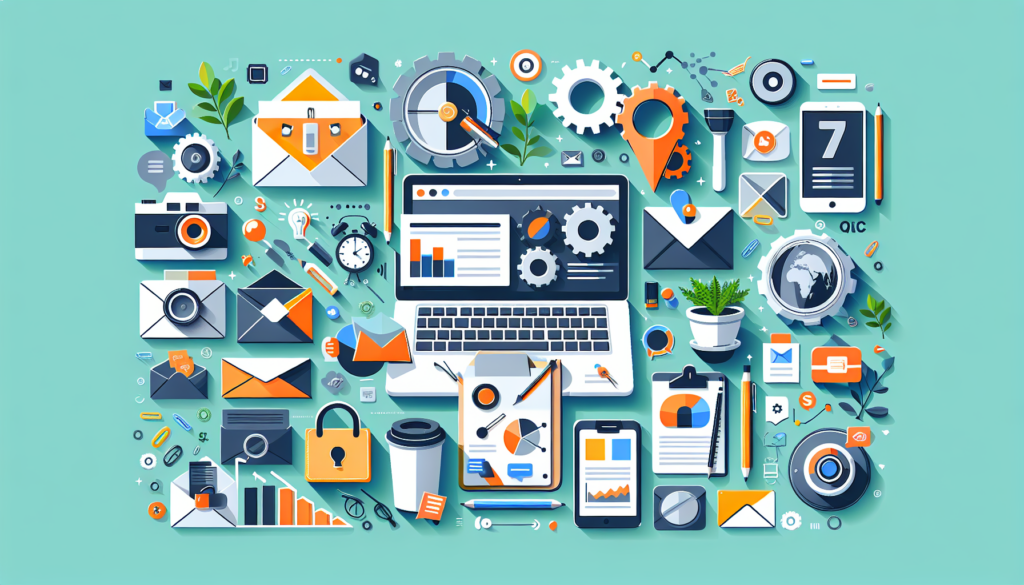Email marketing has remained a trusted source for preserving and nurturing customer relationships, despite the advent and popularity of social channels and other digital platforms. This direct communication channel enables detailed segmentation and an in-depth analysis of consumer behavior. In this article, we explore seven email marketing strategies that every professional should consider incorporating into their repertoire.
Welcome Campaigns
Welcome campaigns are triggered following a subscription or the user’s first contact with the brand. These campaigns are essential not only to confirm the subscription but also to establish the first positive interactions with the brand. At this stage, it is crucial to offer highly relevant content to increase the likelihood of future engagement. It is recommended to include tutorials, educational resources, or any form of added value that enhances the brand’s perception from the get-go.
Educational Campaigns
Often underestimated in their potential, educational campaigns aim to inform the user about the product or service. The use of guides, video tutorials, webinars, case studies, and frequently asked questions are valuable resources for positioning the company as a reference in its sector. The content must be meticulously designed to be at once understandable and deeply technical, ensuring that it resonates with an audience that is both knowledgeable and demanding.
Regular Newsletters
A regular newsletter is a periodic communication that helps keep subscribers updated on relevant news, product updates, tips, and other pertinent information. These newsletters should have a well-designed structure and be faithful to brand identity in tone and style. The sending frequency must be carefully considered to avoid communication saturation and the subsequent disinterest or unsubscription by the reader.
Re-engagement Campaigns
Re-engagement campaigns aim to recapture the attention of inactive subscribers. In this type of campaign, past behavior data is often used to personalize messages and rekindle interest. Proper segmentation based on the user’s previous activity and A/B tested messages are key to these campaigns.
Abandoned Cart Campaigns
The phenomenon of the abandoned shopping cart is a significant challenge in e-commerce. Abandoned cart campaigns seek to persuade the customer to complete the purchase they did not finalize. Persuasion tactics such as reminders, limited-time offers, or showcasing the benefits of the product more prominently should be employed. The accuracy in timing and personalization of these campaigns can have a direct and measurable effect on sales recovery.
Confirmation and Follow-up Campaigns
Confirmation and follow-up campaigns are used to keep the customer informed throughout the buying process. Starting with an order confirmation and followed by updates on the shipping status, these communications increase consumer confidence in the brand and reduce the possibility of post-sale customer service by clarifying questions in advance.
Campaigns Based on Special Dates
Led by personalization and immediacy, campaigns based on special dates focus on individual or general events such as birthdays, anniversaries, or holidays to offer personalized deals. These campaigns must combine a high degree of relevance with a sense of exclusivity to maximize the user experience and encourage immediate action.
Case Studies
A powerful complement to these strategies are case studies. They provide specific examples of how to apply these campaigns successfully. For instance, using re-engagement campaigns in industries with long purchase cycles, such as automotive, can be illustrative of the meticulous analysis required to identify the points of disengagement and reactivation of interest.
Looking to the Future
The adoption of artificial intelligence and machine learning in email marketing is opening up new possibilities, from personalization to optimizing the time of sending. The upcoming innovations point to an even tighter integration with the user’s digital ecosystem, where email marketing could adapt in real-time to the omnichannel activity of customers.
The aforementioned email marketing techniques are the foundation upon which a robust communication strategy focused on customer retention and loyalty is built. By executing them with precision and creativity, a continuous and effective dialogue can be established that not only converts but also builds long-term relationships based on continuous value and meaningful interaction. For the contemporary email marketing professional, the mantra should be personalization, relevance, and analysis, constantly adjusting tactics to the audience’s response and behaviors.

